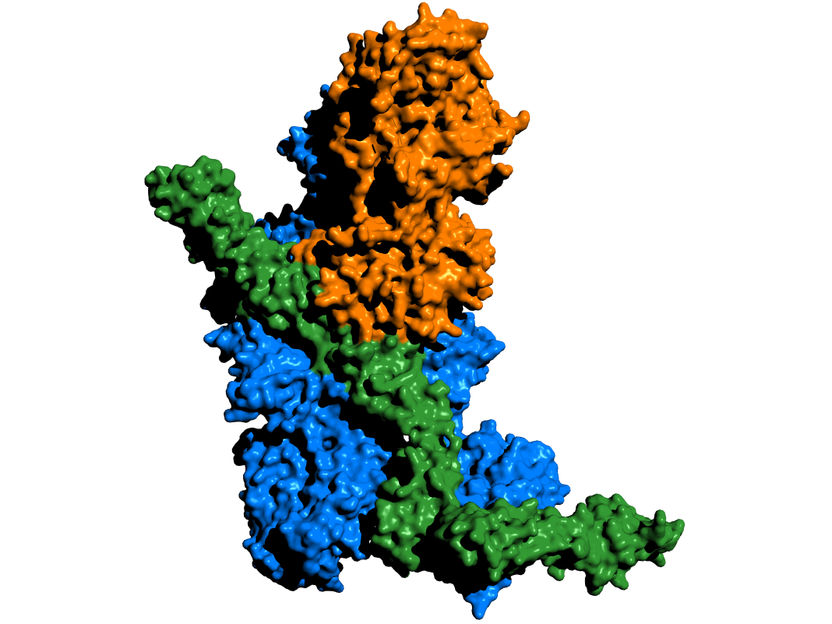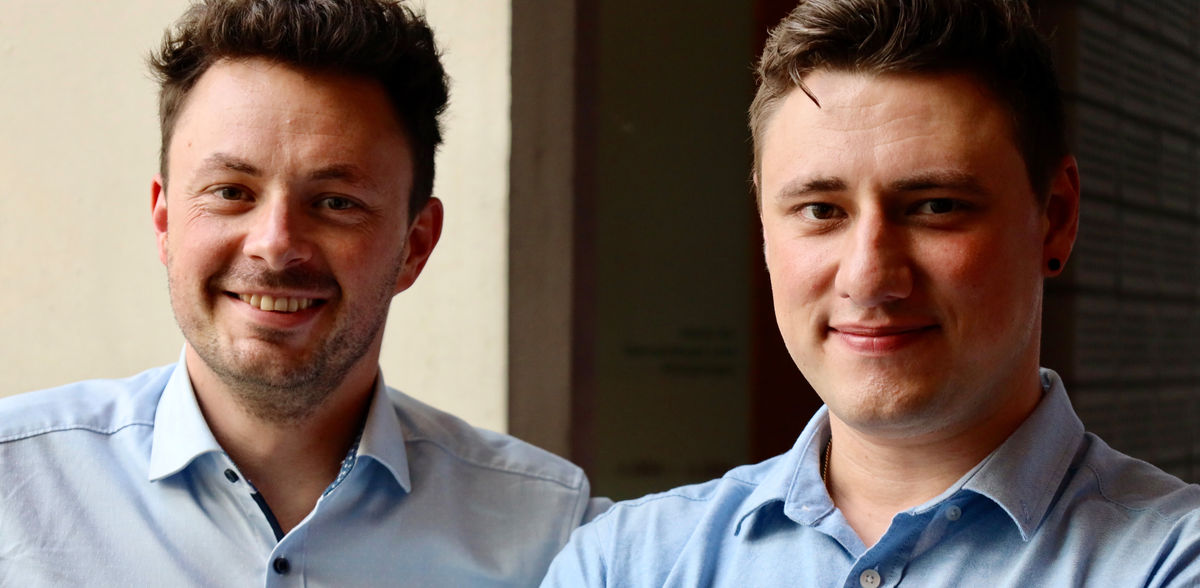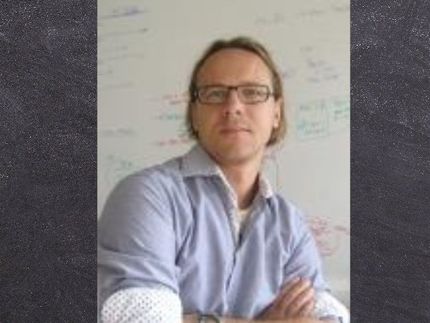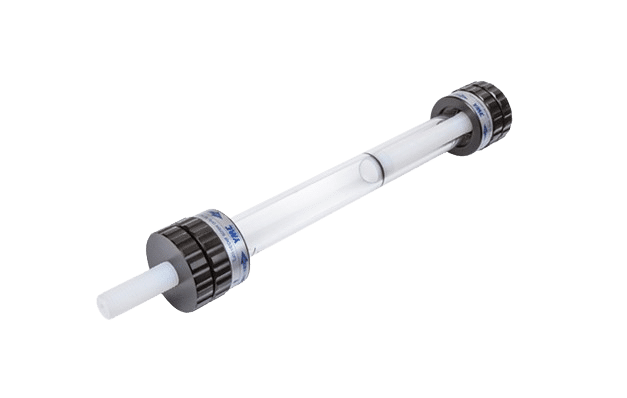Novel protein to prevent immune system attacks on own body
1.2 million euros for immunology start-up
Ulm-based company founders Dr. Arthur Dopler and Matteo Mohr receive 1.2 million euros for two years from the EXIST research transfer program. The federal and EU funding program supports start-up projects that involve a high level of risk and development effort. The funded project involves a novel protein that is intended to correct dysregulations in the immune defense system. The special focus is on the so-called complement system, a part of the innate immune system whose malfunction is associated with serious diseases.

At the heart of the company's foundation is a novel protein that is designed to prevent attacks by the immune system on the patient's own body. The figure shows the crystal structure of a predecessor version of the novel molecule
Prof. Christoph Schmidt, Uniklinikum Ulm
When the immune system massively attacks the body's own cells instead of pathogens, the body has a problem: serious organ and tissue damage is the result. The cause of this often lies in genetic dysregulation, which triggers life-threatening diseases. To date, a large proportion of these diseases can only be treated inadequately or not at all. At the Ulm-based startup, which combines pharmacological and biomedical research, everything revolves around a promising protein that is able to avert dysregulation in a part of the innate immune system - the complement system.
The startup, which has already received funding through the BMBF's GO-Bio Initial program, will now receive funding from the EXIST Research Transfer program of the German Federal Ministry of Economics and Climate Protection (BMWK) and the European Social Fund Plus (ESF Plus) of the European Union in the amount of 1.2 million euros for a period of two years. This money will be used to produce the novel protein, characterize it biochemically and biophysically, and demonstrate its efficacy in vivo.
"Our goal is to bring this molecule into clinical use in order to treat diseases of the complement system more effectively and at the same time more gently," says project leader Matteo Mohr. The scientist, who studied bioprocess engineering and management at the Technical University of Munich, has been conducting research at the Institute for Experimental and Clinical Pharmacology, Toxicology and Naturopathy at Ulm University Hospital since 2022. These rare, albeit serious, diseases of the complement system include, for example, paroxysmal nocturnal hemoglobinuria (PNH) or atypical hemolytic uremic syndrome (aHUS), as well as C3 glomerulopathy (C3G). The clinical picture of such diseases includes, for example, the dissolution of red blood cells, an increased tendency to blood clots, and damage to the inner walls of blood vessels or kidney function.
Overreactions of the immune system lead to life-threatening diseases
The task of the complement system as part of the innate immune system is to fight pathogens and to eliminate old and damaged cells by recognizing, marking and destroying them. The network of over 40 different proteins can be set in motion by different activation pathways, which in turn trigger highly complex reaction cascades. "This process is strictly regulated. Several mechanisms protect against the complement system overreacting and destroying healthy cells. However, gene mutations, but also transplantations, can lead to misregulations that result in life-threatening diseases," explains Dr. Arthur Dopler. The immunobiologist from Ulm, who will take over as scientific director after the startup is founded, did his doctorate on the complement system.
The novel molecule is now intended to ensure that a dysregulated complement system is properly regulated again. It was developed over many years of research by Professor Christoph Schmidt, who has been conducting research at the Institute for Experimental and Clinical Pharmacology, Toxicology and Naturopathy at the University of Ulm since 2011. Schmidt, who is also Dr. Dopler's doctoral supervisor, filed an international patent application for the protein together with physicians Professor Markus Huber-Lang (Institute of Clinical and Experimental Trauma Immunology) and Professor Hubert Schrezenmeier (Institute of Transfusion Medicine). The newly developed regulator protein is based on naturally occurring proteins of the complement system and combines their properties in a unique molecule. Due to its enzyme-like mode of action, this innovative regulator can deactivate a large number of target molecules without being "consumed". Compared to the therapies already available, this is a major advantage, as the novel molecule has a very high efficacy. In addition, it enables the treatment of a wide range of diseases and acts exactly where it is supposed to.
The EXIST funding will now be used to prove the effectiveness of the regulator in vivo. In addition, the founders will establish a production process that will allow the novel molecule to be manufactured on a laboratory scale. To achieve these goals, the founding team will be strengthened by two additional individuals who specialize in protein production and analysis. Over the next two years, the team will also develop a business plan, move forward with the company's formation and seek follow-up financing. "After that, the project will have to face the demanding and long-standing processes of drug development," the startup founders said. Assistance will come from Professor Holger Barth, director of the Institute for Experimental and Clinical Pharmacology, Toxicology and Naturopathy, where the startup team is based. The start-up project is supported by the Entrepreneurs Campus as well as the Life Science Incubator and the Technology Transfer of the University of Ulm.
Note: This article has been translated using a computer system without human intervention. LUMITOS offers these automatic translations to present a wider range of current news. Since this article has been translated with automatic translation, it is possible that it contains errors in vocabulary, syntax or grammar. The original article in German can be found here.
Other news from the department business & finance
Most read news
More news from our other portals
Something is happening in the life science industry ...
This is what true pioneering spirit looks like: Plenty of innovative start-ups are bringing fresh ideas, lifeblood and entrepreneurial spirit to change tomorrow's world for the better. Immerse yourself in the world of these young companies and take the opportunity to get in touch with the founders.



























































